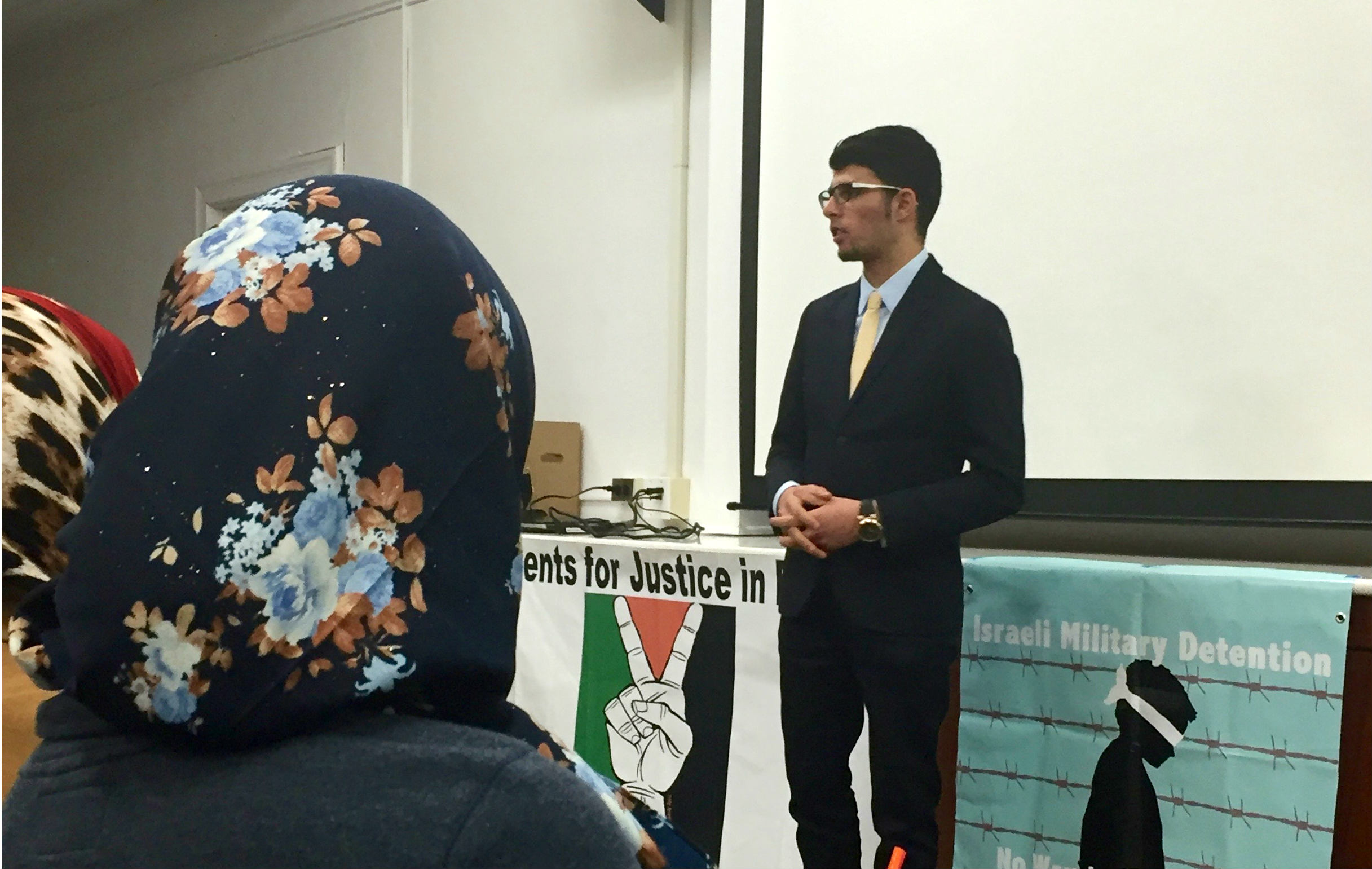
A phone call at dinner becomes a personal reminder of why we must end the detention of Palestinian children.
In my tenure with AFSC, I have had the privilege of organizing hundreds of U.S. speaking tours featuring courageous individuals—mainly from the Middle East—working for peace and justice.
I’ve enjoyed being a host organizer—orienting speakers on their first visit to the United States and interpreting American slang, helping them overcome the stress of a lost wallet or suitcase, watching them taste their first sushi or Chicago pizza, or finding a Ferris wheel or feminist bookstore to break from the grind of meetings and public events.
Recently I traveled with four colleagues who are working with AFSC on our advocacy campaign Israeli Military Detention: No Way to Treat a Child. Two of them worked for Defense for Children International-Palestine and are based in New York. The others included a participant in AFSC's fellowship program in Chicago and a Palestinian college student studying in the United States this year.
 The Palestinian student, Yazan, was spending his spring break traveling with us as we showed our new film, “Detaining Dreams,” in cities along the East Coast. The film is a documentary about four teenage boys in the occupied Palestinian territory who had experienced detention by the Israeli military. These four boys are among the 700 Palestinian children who are arrested and detained by Israeli military every year. Yazan helped us make the documentary last spring, when he was still living in the West Bank village of Beit Ummar, and knows all of the boys featured in the film.
The Palestinian student, Yazan, was spending his spring break traveling with us as we showed our new film, “Detaining Dreams,” in cities along the East Coast. The film is a documentary about four teenage boys in the occupied Palestinian territory who had experienced detention by the Israeli military. These four boys are among the 700 Palestinian children who are arrested and detained by Israeli military every year. Yazan helped us make the documentary last spring, when he was still living in the West Bank village of Beit Ummar, and knows all of the boys featured in the film.
Our appearances in Philadelphia and New York included a variety of audiences—church groups, student groups, law students, community activists—and when we weren’t presenting, we were busy discussing new ideas to improve and expand our campaign. We bonded over coffee, took selfies at tourist landmarks, and lugged our literature, buttons, and banners through the subway system. My step counter watch hit record high numbers.
Toward the end of trip, we celebrated our success at a tapas restaurant in Brooklyn—encouraging Yazan to expand his food repertoire—when Yazan got a phone call. His mother was calling to say that their family home was surrounded by Israeli soldiers and that she feared Yazan’s younger brother might be arrested. Yazan excused himself and went outside to talk to his mother. The rest of us stopped eating, struggling to find the right words to say when Yazan came back to the table.
“I guess this makes it clear our work is necessary,” I think I said, although honestly I struggled to know just how to be supportive of Yazan at that moment. I knew his family was proud of him, even eager that he had the opportunity to study in the U.S. But, I wondered, are we putting him and his family at risk by having him share his story?
The next day, I got my answer. After we showed the film to a room full of New York law students, Yazan told the audience about the phone call he had received from his mother the night before. While the Israeli army night raid on his village didn’t result in his brother’s detention, the soldiers had arrested his cousin.
 Unless he and others in the room spoke out against the detention and abuse of Palestinian children, Yazan explained, life for Palestinians under military occupation would continue to deteriorate. His presentation drew great applause.
Unless he and others in the room spoke out against the detention and abuse of Palestinian children, Yazan explained, life for Palestinians under military occupation would continue to deteriorate. His presentation drew great applause.
I have great admiration for people like Yazan who are willing to share their personal stories with U.S. audiences in the hopes of changing public opinion and inspiring action. One audience member said, “I am not a supporter of the American Friends Service Committee—in fact I disagree with them on most things—but this young man is brave to tell this story. I have to admit you have a powerful message and campaign.”
Yazan reminded me of the power of his shared personal testimony, but also of the conscious risks that Palestinian speakers like him take to help us see and hear their truth.